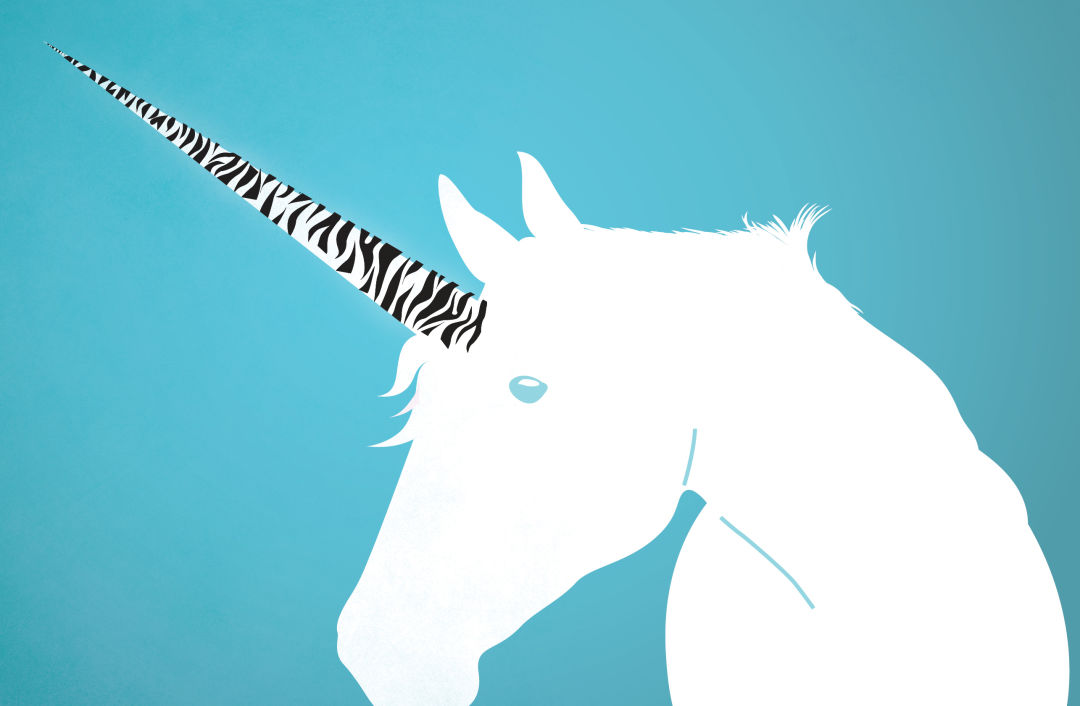Step Aside, Unicorn. A Portlander Sets Out to Breed a Saner Start-Up.

What’s a zebra? A saner start-up, built for attainable profit, informed by social, political, and environmental responsibility.
Image: Michael Novak
In high-tech circles, awed whispers tell of the “unicorn”: the start-up so brilliant, so “disruptive,” it promises to mass-produce billionaires and repay investors lavishly. Only $1-billion-plus valuations make the herd. Facebook: the definitive unicorn. Uber: unicorn. Airbnb: unicorn. Snap. Palantir—don’t Google that one if you fall easily into Internet conspiracy wormholes.
The search (“hunt” sounds wrong, no?) informs many Silicon Valley decisions. And one Portland start-up CEO thinks that is where many tech industry problems begin.
“A company’s culture is born of its business model,” says Mara Zepeda. “If your model is radical growth at all times, that sanctions any behavior that makes that growth possible.” The 37-year-old cofounder of Switchboard, a networking platform for college alumni, Zepeda believes the unicorn obsession—and its unrealistic return promises—fosters antisocial products, unsustainable strategies, toxic corporate cultures, and tech-bro boorishness.
We could go into detail, or you could just consider Uber.
Zepeda favors an alternative: the “zebra,” a term explored in a recent essay she cowrote with Jennifer Brandel, cofounder of the Chicago journalism start-up Hearken. What’s a zebra? A saner start-up, built for attainable profit, informed by social, political, and environmental responsibility.
In large part, Zepeda and Brandel are arguing for a new approach to investment. “Right now, venture capital needs to hear the magic term ‘10X,’” she says, meaning that companies courting VC money must promise a unicornish tenfold return. “Otherwise, they often say no, no matter how good the idea is. And yet, about half of start-ups fail within five years anyway. We’re setting fire to piles of money.”
She imagines a zebra would aim for something more like 2X or 5X; that a zebra would create helpful, not addictive or “disruptive,” products; and that a vogue for zebras would help people VC currently ignores. (Women, for example, received just under 5 percent of US venture capital in 2016, according to one recent study.)
The evolution of the species has just begun. An October conference in San Francisco will focus on detailing the concept, and zebra-friendly financing models remain works in progress. But Zepeda says the response so far suggests the zebra could thrive in the wild.
“Start-up culture is very distinct,” she says. “People want an alternative. We’ve already heard of people dressing up as zebras at conferences.”









